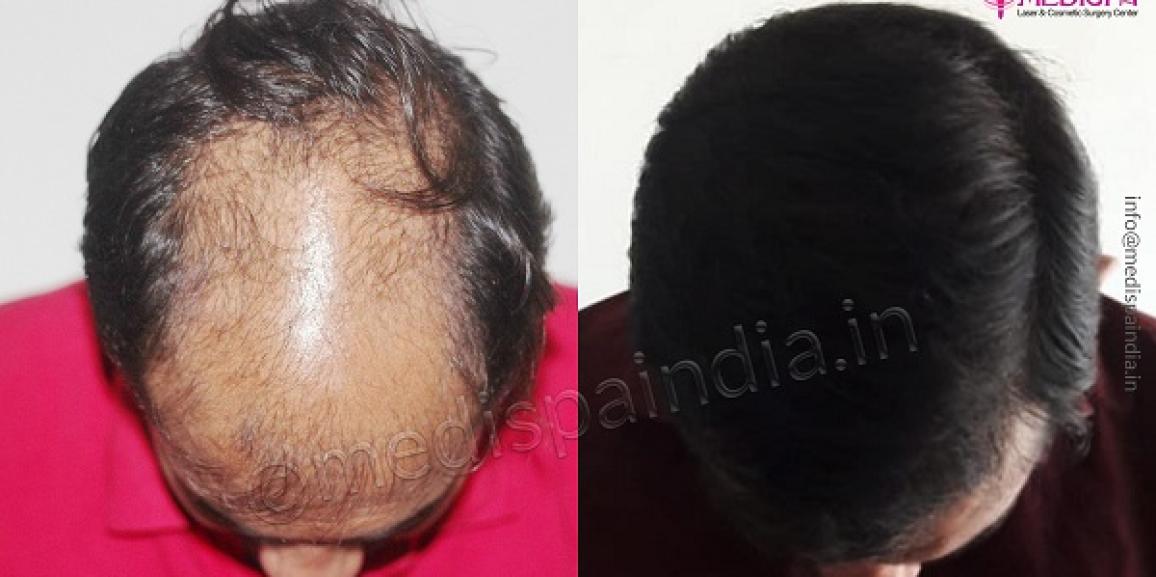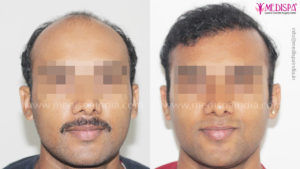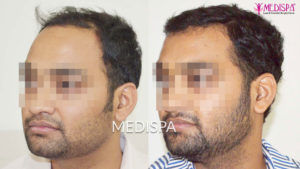
Every year, Medispa hair transplant clinic serves hundreds of hair loss patients and is well aware of their concerns about the procedure. Before undergoing a hair transplant procedure, all patients usually have a similar set of questions that must be considered. We try to answer all questions as honestly as possible and inform our patients about the procedure’s benefits and drawbacks.
The industry of hair transplant in India has grown at an exponential rate, making the field extremely competitive. Most clinics have shifted their focus to marketing rather than improving their infrastructure and procedure quality. However, a few hair transplant clinics in India are well-known for their expertise and high hair transplant success rates.
Dr. Suneet Soni is the best hair transplant surgeon in India, with international acclaim for his skills and expertise. He is well-known for his exceptional artistic sensibility, which is well-liked by the majority of his domestic and international patients, including celebrities. He is a perfectionist who prefers to perform all hair transplants himself in order to achieve flawless results.
In this article, we’ve compiled a list of questions that most people ask us during their initial consultation for hair transplant.
- Do you meet the criteria for a hair transplant?
Though anyone can choose to have their hair transplanted, there is no guarantee that you are a good candidate for the procedure. You must visit the hair transplant surgeon and be evaluated in order to confirm your eligibility. The scalp is thoroughly examined, and the medical history is recorded, after which the candidate’s eligibility is confirmed.
- Do you require a certain number of hair grafts?
The most important question to consider prior to the procedure is how many hair grafts are required to adequately cover the bald area. This is determined during the consultation by your hair transplant surgeon based on the extent of the bald area, the availability of hair grafts in the donor area, and the patient’s budget.
- Are there enough hair follicles to produce pleasing results?
The availability of hair grafts in the donor area determines whether or not you are a candidate for hair transplantation. Hair transplantation can only be done with your own hairs, so if you don’t have enough of them to cover your bald spot, this procedure isn’t for you.
- Which hair transplant technique is best for you?
FUT and FUE are two standard hair transplant techniques that are distinguished by the graft harvesting procedure. Each technique has its own set of indications, which your hair transplant surgeon will use to determine which technique is best for you.
- What can I anticipate from the procedure?
This is an important question to ask during the consultation because having unrealistic expectations for the procedure will leave you disappointed in the end. As a result, the hair transplant surgeon usually informs you of the procedure’s minimum expectations.
- When will you be able to see the results?
The majority of patients who come to us believe they will receive their results immediately after the procedure, which is not the case. The newly planted hairs would most likely take 6 to 12 months to grow. The hair growth, on the other hand, does not require any special attention because it grows in the same way as your other hairs.
- What’s the source of your baldness?
There could be a variety of causes for hair loss, each of which is ruled out one by one during the consultation to determine the true cause. Knowing the cause of hair loss is essential because it determines whether or not you are a good candidate for a hair transplant.
- How much would a hair transplant cost?
The cost of a hair transplant is determined by a number of factors that are considered during the consultation. The number of hair grafts required is the most important factor, as the cost is calculated per hair graft. The cost of the procedure will increase as the number of hair grafts required increases.
- Is it possible that I’ll need more hair transplant visits in the future?
After carefully examining the scalp, a hair transplant surgeon can predict whether or not your hair loss will progress. So make sure to ask for it because it will help you prepare for future hair transplant appointments.






